Bee motivated: Beekeeper in Laguna drops a semester during his college education to attend beekeeping training and pursue passion
By BENJAMIN SARONDO
Failing his dream course and university forced Marvin Manila, the 34 year old owner of 3miel Bee Farm located in Los Baños, Laguna, to master a different field far from his passion, agriculture.
Manila has always had a passion for agriculture because of the influence of his father, who is a pathologist, and his mother, who finished an agribusiness course. He decided to take up an agriculture course at the University of the Philippines - Los Baños (UPLB), but he was not admitted. Manila still desired to pursue it, even at a different school, but his parents did not want him to study far away from their province. Manila took up an education course majoring in mechanical technology instead.
In completing his degree, he decided to drop a single semester to attend a training course about beekeeping. “My older sister, who is a part of the BeeNet Program of UPLB, invited me to attend an intensive training about beekeeping, and I grabbed the opportunity since I was also thinking of a business that can generate income in the future,” Manila said. That became the start of his beekeeping career.
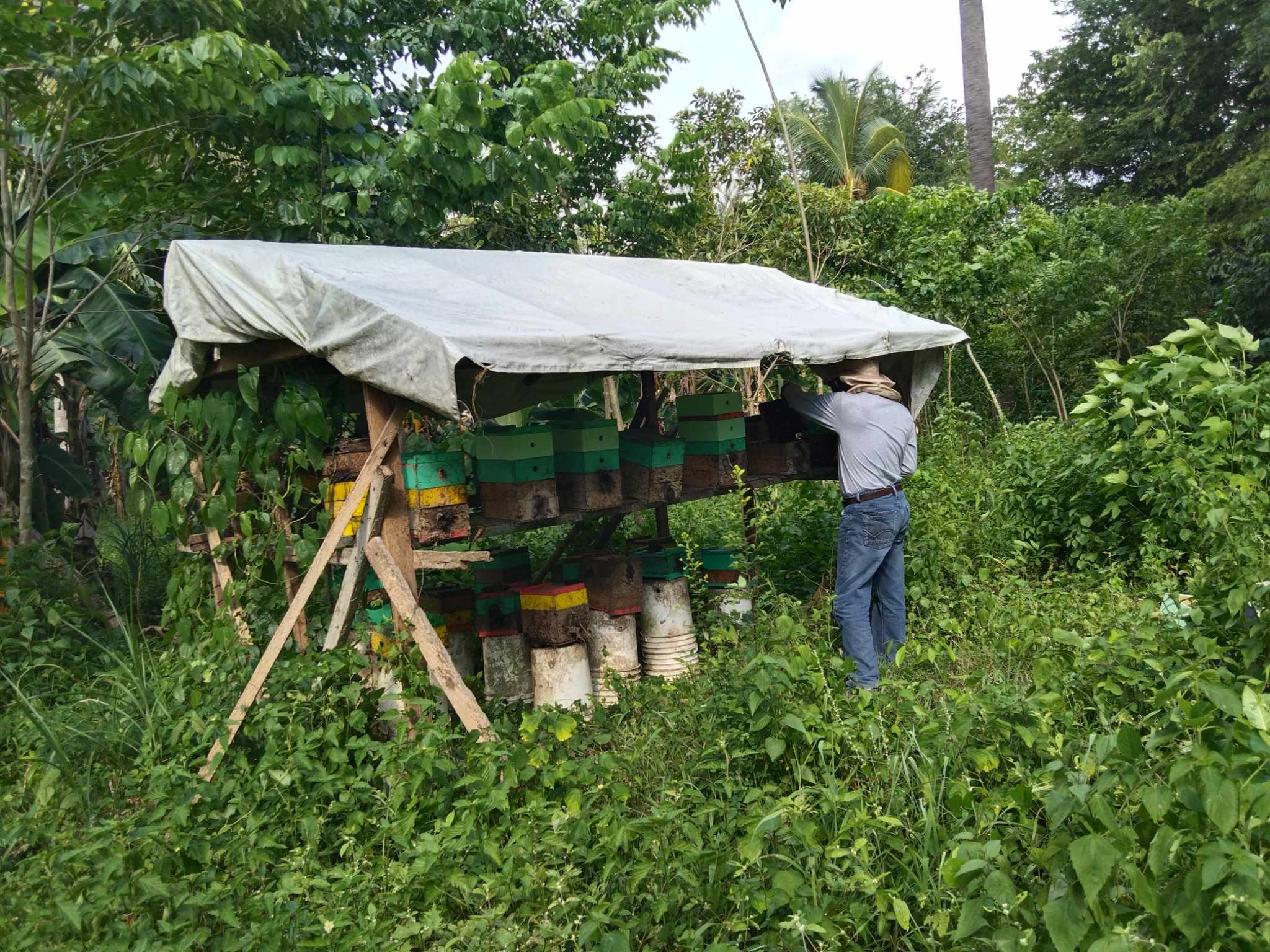
Expanding knowledge
According to Manila, the BeeNet Program allowed him to learn about and understand bees, but most of their learning was about the management aspect of beekeeping. Through this program, he was introduced to the different species of bees, how to manage the native and imported species of bees, and also the value adding products.
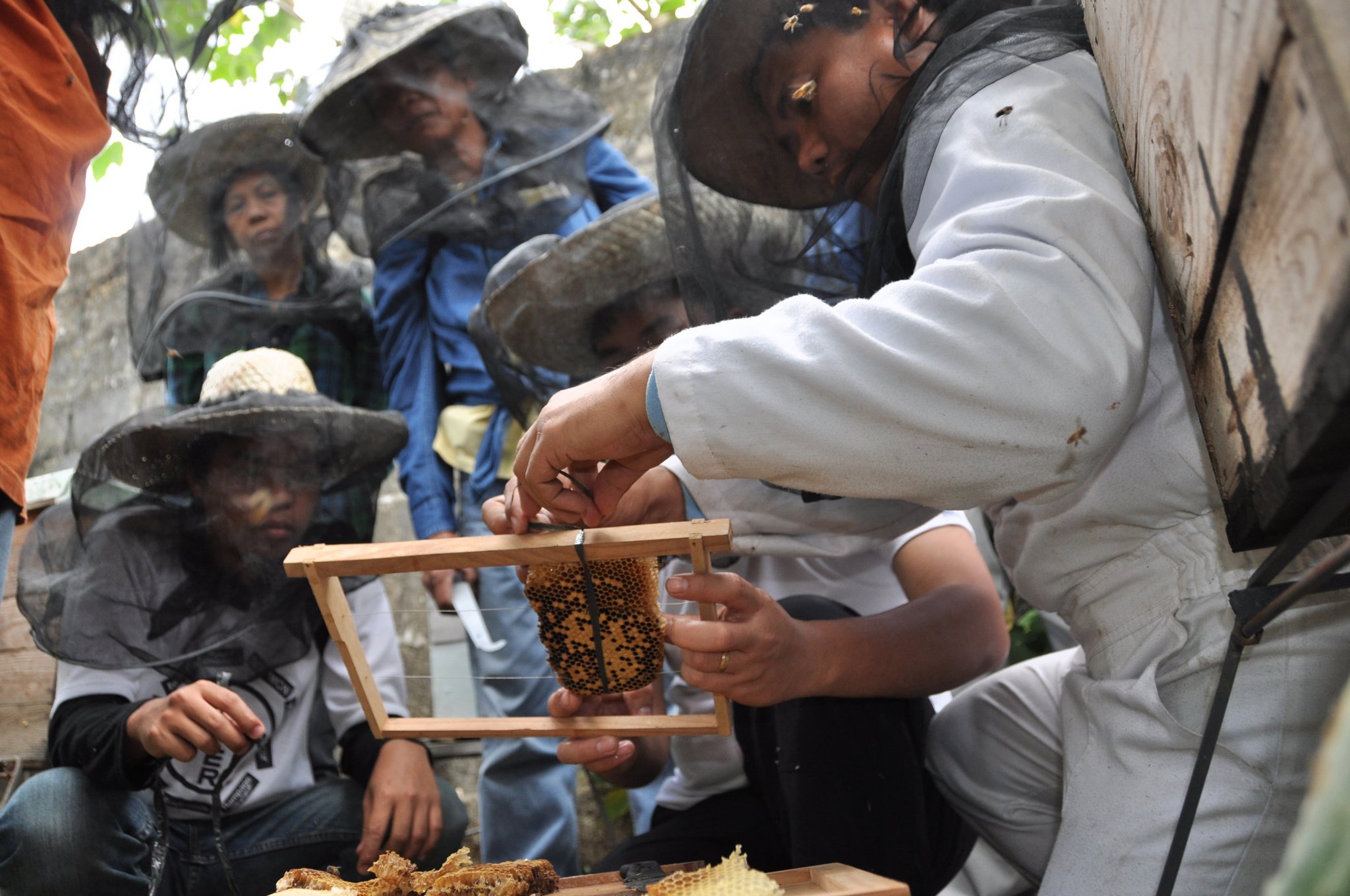
“After attending the BeeNet Program, I decided to start a small scale business where I bought two hives of imported bees, and at that time I was able to sell a bee hive and gain profit,” Manila stated.
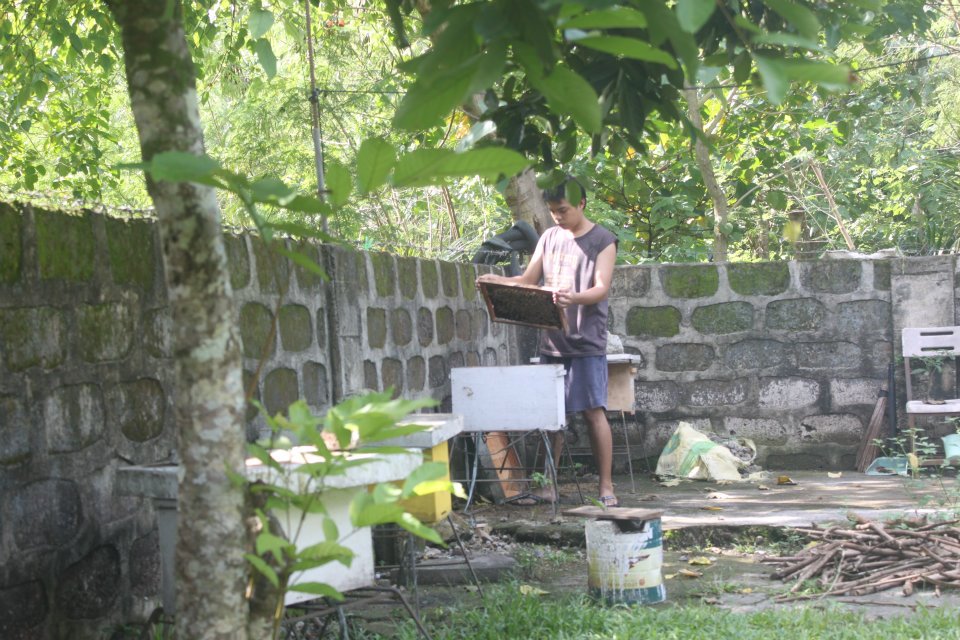
Manila still finished his degree, but after graduating, he became a full time beekeeper. But to improve his knowledge and skills about beekeeping, Manila applied for a year-long training program in Australia, from September 13, 2015 to September 9, 2016.
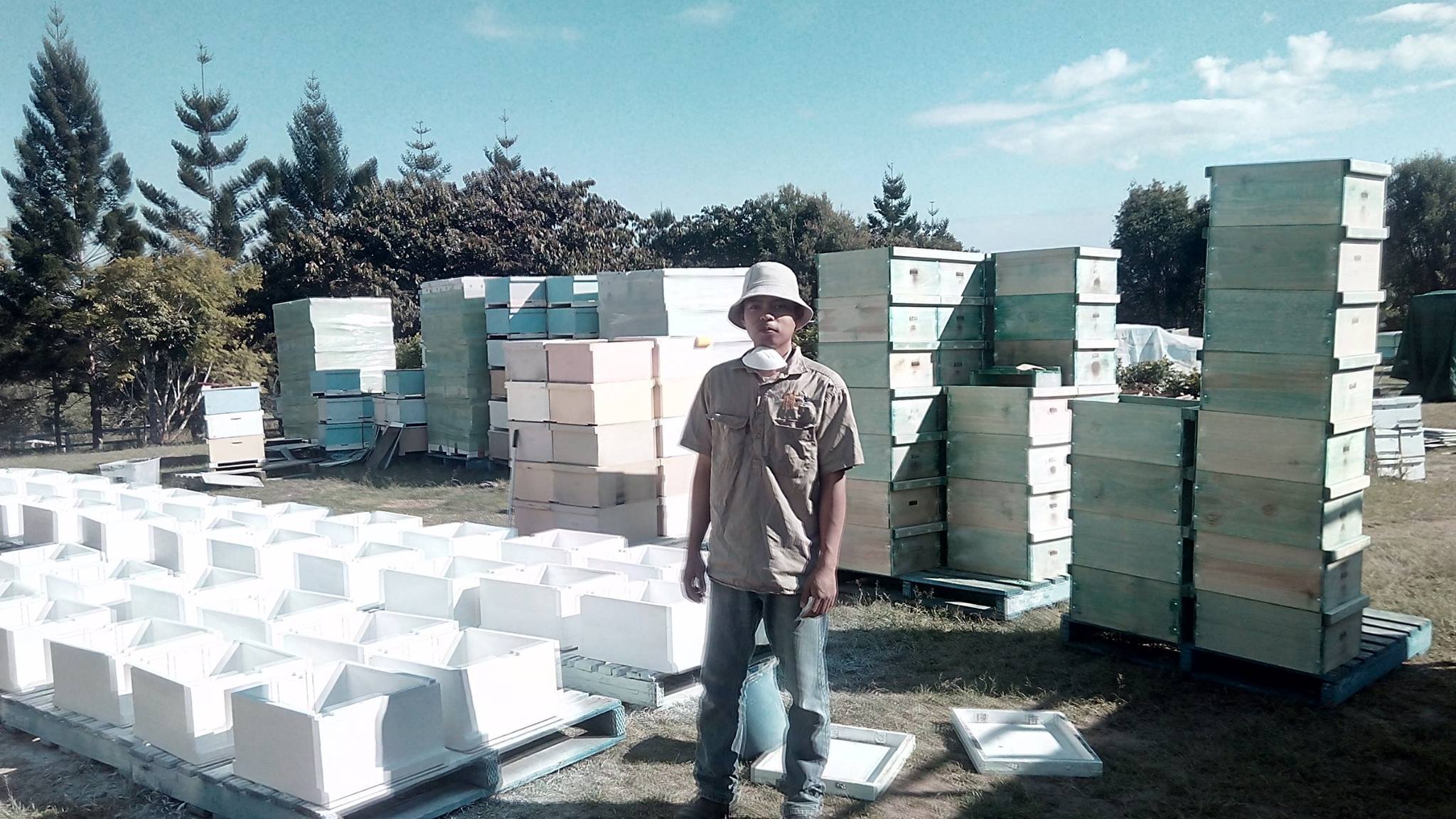
“When I got there, my boss analyzed my strengths and weaknesses; since beekeeping requires heavy lifting and I have a small physique, he assigned me to the queen breeding program, which has more complex work to do,” Manila said.
When he came back to the Philippines, Manila said that he applied all his learnings from Australia to his bees. But unlike in Australia, where he concentrated on the queen breeding program, he was an all around beekeeper in the country.
Manila said that his other tasks on the bee farm include woodworking and the propagation of bee forage plants.
“The situation in Australia is different from the Philippines because the volume of honey and bees is much higher and the forage quality is better,” Manila added.
Coping with challenges
But the training he attended was still not enough to overcome the challenges he faced as a beekeeper. Since he is beekeeping different species of bees, both native and imported, he struggles with providing them forage since these species demand different forages.
“I am still struggling with keeping different species at the same time because I need to apply different strategies on how to take care of them, especially the location and forage area,” Manila stated.
Another problem is bee eaters, which prey specifically on the imported bees on his beesite. “Imported bees yield a high amount of honey, but they require thorough pest management since they are very vulnerable to bee lice and bee eaters,” Manila said.
The problem with native bee species, Manila said, is their low production of honey. He said that stingless bees, a native species, only produce 700 grams of honey per yard. “This amount of honey from native bee species cannot make a high profit; it will not be enough to sustain the business and our needs, but with the help of value addition, we were able to increase its worth,” Manila added.
Manila also stated that global warming is a major challenge in the beekeeping industry. The beekeepers cannot predict the weather pattern, so they cannot prepare for the season of flowering trees and yielding honey.
In some instances, the bees are already looking for their preferred forage, but the season of that particular flower or tree is still not available.
“We cannot control this situation; the only thing we can do is adjust to what the weather dictates, but our expenses with this setup will be higher,” Manila said.
Marketing products and services
Manila said that his focus on the business now is to sell bees, honey, and propolis. “Never harvest too much honey, and always leave some for bees,” Manila said. One strategy that a beekeeper must follow is to always provide a very good bee pasture for the bees to be more productive, Manila added.
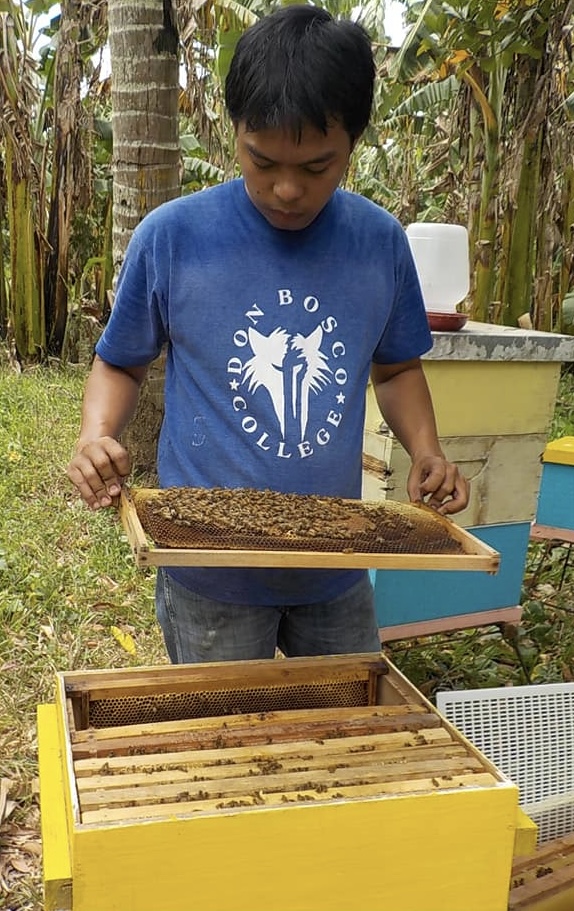
He also sells products such as soap, shampoo, lip balm, massage oil, lotion, ointment, and candles that are all organically-made from bees. Manila markets his products to some local bazaars, but he said most of his sales come from selling hives.
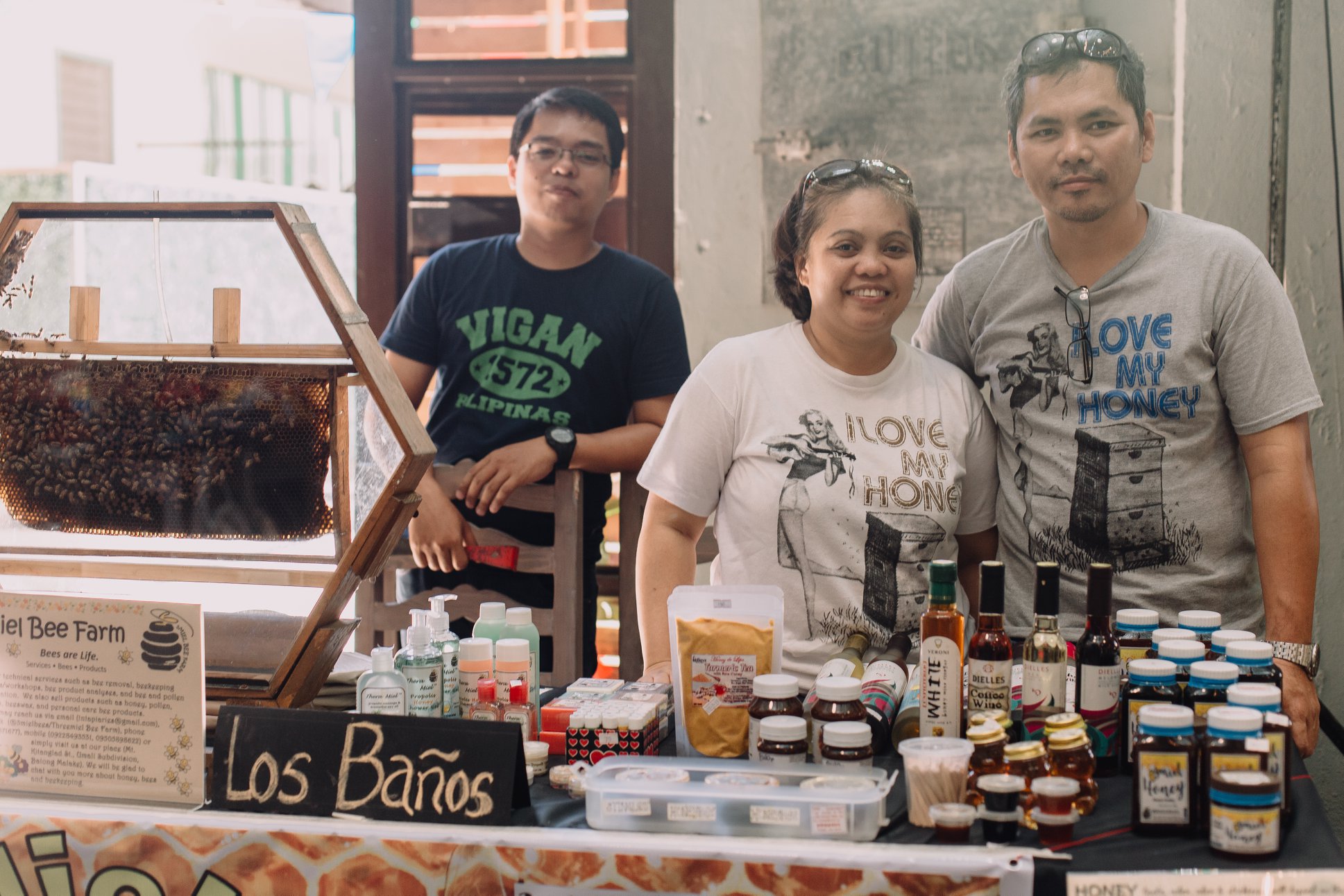
Aside from the available products, he also offers services like bee removal, especially in urban areas. “After extracting the bees, particularly the wild bees and Philippine giant honey bees, we release them to Makiling Forest Reserve,” Manila said.
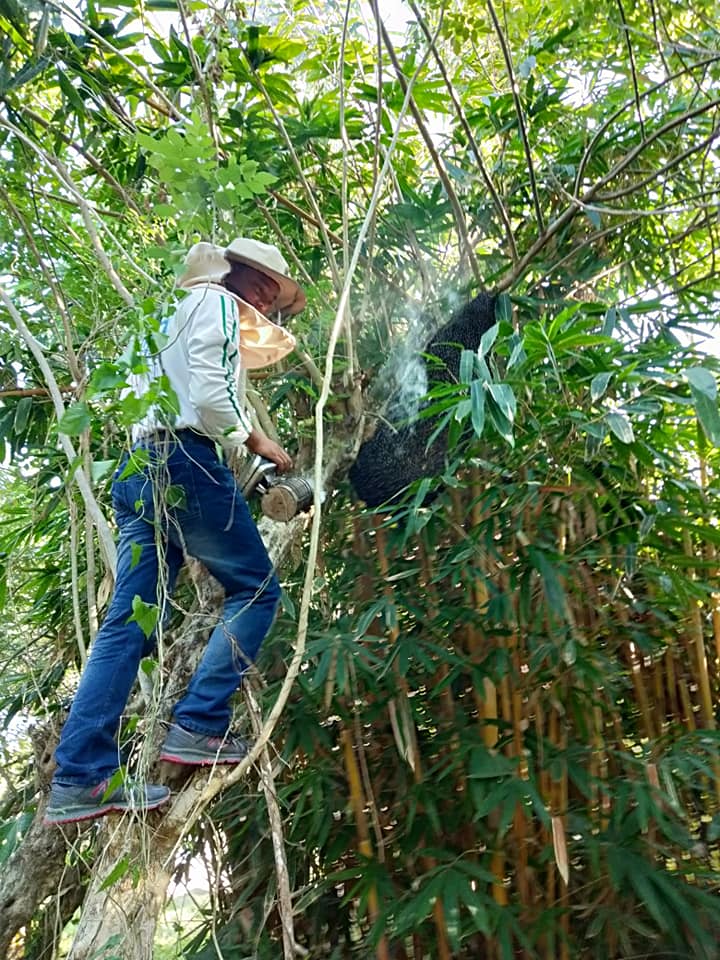
Some beekeepers and those who want to venture into the beekeeping industry can also consult with Manila. He will share the knowledge and skills he has acquired from the training he has attended and from firsthand experience.
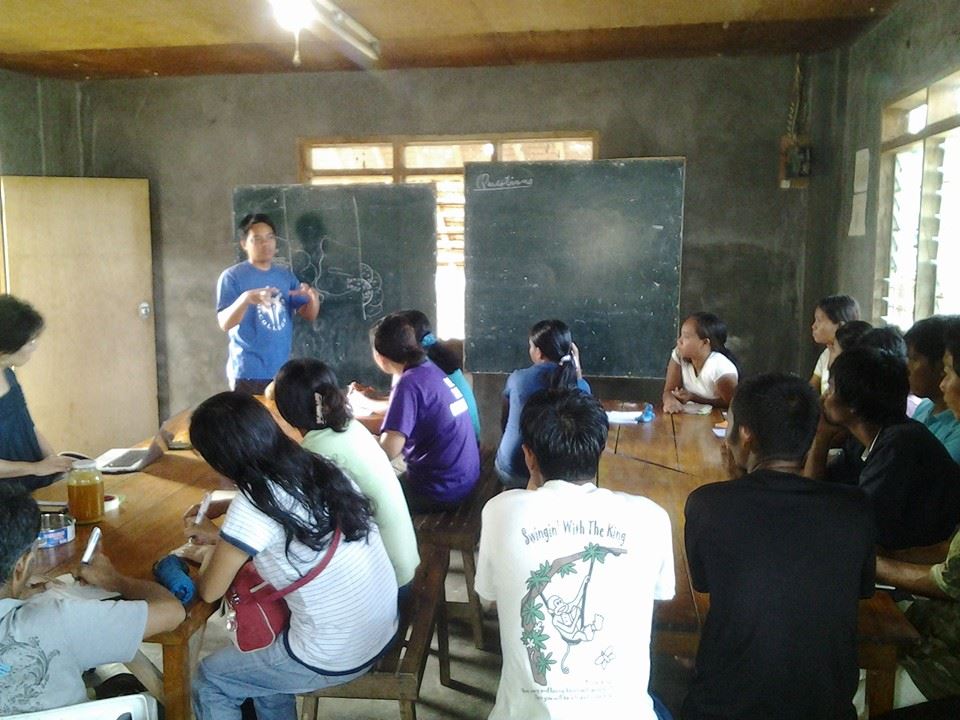
But Manila shared that attending formal training is important, but those who want to start their beekeeping industry may also visit beesites and beekeepers to inquire whether this kind of business can be pursued in their area. To test whether they can profit from bees, they may start on a small scale, where two to four hives are enough, Manila said.
Manila said that being a beekeeper helped him gain profit and that he loved the bees because of their great contribution to people and the environment.
Other people consider them wild and fearful, but little did they know that one-third of the food that people eat is pollinated by bees. They also play a major role in plant reproduction and the genetic diversity of trees.
Photos by Marvin Manila